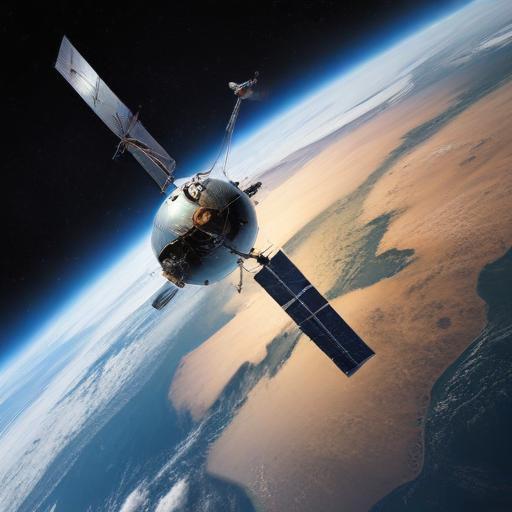A crucial U.S. atmospheric data collection program, the Defense Meteorological Satellite Program (DMSP), is set to be suspended by the end of June 2025. This decision, confirmed in a notice from the National Oceanic and Atmospheric Administration (NOAA), puts weather forecasting and monitoring capabilities at significant risk. Experts fear that this change could regress hurricane forecasting by decades, especially as the current hurricane season intensifies.
The DMSP’s satellites are critical for their ability to provide high-resolution global data twice daily. These satellites are relied upon to monitor vital information such as Arctic sea ice levels and the development of hurricanes. The abrupt announcement of the program’s cessation has raised concerns among scientists, who have pointed out that there are no alternative U.S. programs capable of compensating for the loss of data that the DMSP provides.
Researchers like Allison Wing, from Florida State University, highlighted the importance of the DMSP satellites in providing insight into hurricane development. Without the data they provide, forecasters may struggle to predict storm intensification accurately, leaving communities vulnerable, particularly in light of increasing hurricane strength and unpredictable weather patterns.
Carlos Moffat, an oceanographer at the University of Delaware, shared his concerns about blinding efforts to observe rapid climate change in polar regions. With historical data showing critical shifts in Arctic and Antarctic ice coverage, cutting access to such essential information is especially regrettable.
The abrupt decision arises amid significant staffing shortages within NOAA and broader federal environmental program cuts, raising further alarm about the systematic dismantling of weather and climate monitoring capabilities. NOAA scientists are reportedly unprepared for the sudden change, calling it a loss of critical forecasting abilities that could have dire consequences for millions living in hurricane-prone regions.
In the wake of this decision, there are inklings of potential reliance on Japanese satellite data, yet experts warn that transitioning to a new data source will take time and might not be as effective as the DMSP’s high-resolution offering.
While NOAA maintains that its forecasting tools remain robust, many in the scientific community argue that the abrupt removal of DMSP data access undermines both public safety and scientific integrity. As ongoing climate changes continuously affect weather patterns, the need for reliable, high-resolution data becomes more crucial than ever.
Overall, the scientists and advocates are hoping for a reversal of this decision, emphasizing the need for continued investment in climate science and monitoring to better prepare for the increasingly unpredictable future ahead.
